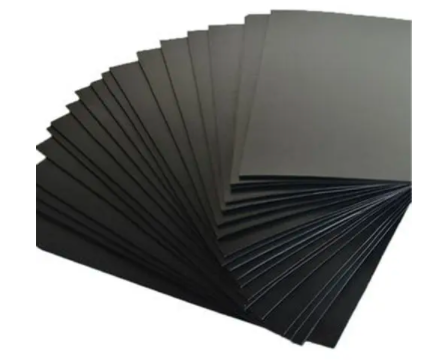- Understanding the Role of Geomembrane Liners in Waste Management
- Innovations in Geomembrane Liners for Water Management
- Geomembrane Liners: A Comprehensive Guide
- The Future of Geomembrane Liners in Civil Engineering
- Geomembrane Liners: Enhancing Landfill Stability
Manager:
WhatsApp:+86 177 0135 2670
Tel:+86 177 0135 2670
Email:marketing@okorder.com
Address:3rd Floor, No.2 Building, No.1 Sanlihe Road
Geomembrane en Ingles: Understanding Geosynthetic Liners
In the world of geosynthetics, however, “geomembrana” (Spanish) is translated as “geomembrane” (English) denoting a variety of materials that are geo-tech workhorses. These engineered fabrics serve as an impervious membrane for the protection of our natural environment and support to key infrastructural systems. This tale navigates through geomembranes with details about their identity, applications and the inventive spirit that propels them forward.
The Voiceless Guardians: Appreciating the Materials behind Geomembrane
Geomembranes are types of geosynthetic materials designed to act as impermeable barriers preventing passage of liquids and gases though soils. Usually made from high density polyethylene (HDPE), linear low density polyethylene (LLDPE), or polyvinyl chloride (PVC) by processes such as extrusion and calendaring. The material chosen depends on specific project needs like chemical resistance, flexibility and durability.

The Manufacturing Marvel
Manufacture of geomembranes involves a symphony of engineering and innovation. It begins with extruding a selected polymer through a flat-die so that it creates uniform surface texture which can easily interlock with soil particles. In essence, this process ensures that the geomembrane created is durable over time under environmental stress but also flexible enough for use in many different applications.
Applications Beyond Boundaries: The Versatility of Geomembrane
To their versatility and dependability attest numerous fields where geomembranes find wide application. Landfill operations depend on these products to cap landfill sites preventing water infiltration and collecting gas from garbage decay. They also function in water management by lining reservoirs and canals to prevent pollution of water bodies such as rivers. Further still, they act as essential liners in waste containment units used when mining so that valuable natural resources remain unaffected by contamination.
The Market Landscape: Venta de Geomembrana
The market of geomembranes is booming with numerous suppliers in place. In fact, “venta de geomembrana” will take us to a wide range of vendors and uses that indicate the high demand for protective materials. EPI company trains installers and seamers on how to do the job at site thus ensuring that works are done professionally.
Choosing the Right Geomembrane
Selecting an appropriate geomembrane for a given project is important owing to its impact on successful completion of the project. For example, one should consider factors such as gauge/thickness of material, size of application area and environmental conditions among others. Moreover, there are geomembranes in the market with different asperity heights, colors and UV resistance properties thus serving diverse purposes.
The Economic Factor: Price Influencers
Types of raw materials used; manufacturing process involved; thickness of the membrane; reputation of the manufacturer are some factors which affect prices of Geotextiles. Hence it is vital for buyers to have knowledge about these elements when looking out for geomembranes available.
The Future of Geomembrane: Innovation and Advancement
New materials and technologies in geomembrane need to be developed because environmental requirements keep getting tighter every day. Therein lies the future for geomembranes- being able to withstand environmental stresses by means new ways that allow better interaction with soil while increasing adaptability across applications as well.
Embracing Innovation
The continuous geosynthetics research and development have influenced geomembrane innovation. This is to improve its mechanical properties, chemical resistantness as well as environmental compatibility. The promise of new manufacturing techniques and materials is for better performing geomembranes.
In Conclusion: The Enduring Impact of Geomembrane
Synthetic materials are not only the term used in describing geomembranes but also they symbolize our commitment to environmentally friendly practices in building. In future, with continued creativity and exploration, the use of geomembranes will be on the forefront to increase lifespan of critical infrastructure.
These products are available for purchase and indicate that human invention has room for growth towards a brighter tomorrow. By incorporating an enhanced interfacial strength, the geomembrane demonstrates our capacity to adjust, evolve and ensure that the following generations live in a safer sustainable environment. These are anthropogenic hugs around Earth; it’s way of telling her she’s loved, cared for and safe. “Venta de geomembrana” should never be seen as merely buying something; it should be looked at as investing into our shared environment heritage thereby moving forward to a time when we can boast about lush landscapes underpinned by advanced material systems that protect them from harm.
- Previous:Firestone Geomembrane: Shielding the Environment, Promising Future
- Next:The Unseen Protector: A Journey in the Role and Market of Geomembrane in Guatemala






